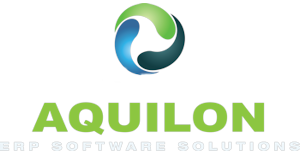In today’s fast-paced business world, Small and Medium-sized Businesses (SMBs) face a multitude of challenges. They often operate with limited resources and manpower while striving to stay competitive and agile in a dynamic market. Effectively managing operations, optimizing resource utilization, and making informed decisions swiftly are paramount for SMBs’ success. This is where an ERP (Enterprise Resource Planning) system emerges as a game-changer. Let’s dive into the top 5 ways SMBs can significantly benefit from implementing an ERP system.
1. Process Optimization and Efficiency

One of the primary advantages of implementing an ERP system is the optimization of processes and enhancement of operational efficiency. SMBs often grapple with disparate systems and manual processes, leading to data inconsistencies, delays, and increased operational costs. An ERP system integrates various business processes into a centralized platform, eliminating data silos and promoting a seamless flow of information across departments.
By optimizing routine and time-consuming tasks such as data entry, order processing, and inventory management, an ERP system has more efficient processes that reduce the manual efforts of the user. This allows employees to redirect their focus towards higher-value activities, ultimately maximizing overall productivity and efficiency within the organization. With streamlined processes, SMBs can deliver products or services to customers faster and more accurately, resulting in improved customer satisfaction and competitive advantage.
2. Improved Data Accuracy and Decision-making

Accurate and up-to-date data is the backbone of successful decision-making in any business. However, many SMBs struggle with various data sources and manual data entry, which can lead to errors and inconsistencies. An ERP system addresses this challenge by providing a centralized database that serves as a single source of truth for all business-related data.
By having real-time and accurate data readily accessible, SMBs can make well-informed and timely decisions. From inventory levels to sales trends, an ERP system provides insights that aid in forecasting, demand planning, and resource allocation. These data-driven insights empower businesses to respond swiftly to market changes and make strategic decisions that positively impact the bottom line.
3. Enhanced Customer Relationship Management (CRM)

Maintaining strong and fruitful relationships with customers is a critical success factor for SMBs. An ERP system often includes CRM (Customer Relationship Management) functionalities that help businesses effectively manage interactions with customers. From tracking customer interactions to managing leads and automating marketing campaigns, a CRM integrated within an ERP system provides a 360-degree view of customer engagements.
With comprehensive customer data and insights at their disposal, SMBs can personalize interactions and tailor their products or services to meet specific customer needs. This level of customization not only enhances customer satisfaction but also fosters long-term customer loyalty. By nurturing customer relationships and providing exceptional service, SMBs can position themselves as trusted partners in their respective industries.
4. Cost Savings and ROI

Implementing an ERP system involves an initial investment; however, the long-term benefits significantly outweigh the costs. Through process automation and efficiency gains, an ERP system helps SMBs realize substantial cost savings. A study showed that “on average an ERP can reduce overall operational costs by 23% and administrative costs by 22%”. The automation of repetitive tasks reduces the likelihood of errors, lowers labor costs, and streamlines resource utilization.
Moreover, an ERP system optimizes inventory levels, minimizing carrying costs and preventing overstocking or stockouts. Better inventory management leads to lower warehousing expenses and improved cash flow. These cost-saving measures contribute to a positive ROI (Return on Investment) over time, making the initial investment in the ERP system a strategic and financially sound decision for SMBs.
5. Scalability and Flexibility

As SMBs aspire for growth, scalability becomes a pivotal factor in choosing business solutions. An ERP system is designed to scale alongside the business, making it an adaptable and future-proof investment. Whether your business is adding new users, expanding into new markets, or integrating with third-party applications, an ERP system can accommodate these changes seamlessly.
The flexibility of an ERP system ensures that it aligns with the evolving needs of your business. This adaptability empowers SMBs to embrace growth opportunities without being constrained by their operational systems. Consequently, SMBs can expand their operations, enter new markets, and seize emerging business prospects with confidence and ease.
Final Thoughts
In conclusion, embracing an ERP system can be a transformative step for SMBs seeking to optimize operations and drive growth. The multifaceted benefits of process optimization, enhanced data accuracy, improved customer relationship management, cost savings, and scalability make an ERP system a strategic asset. By choosing an ERP solution like Aquilon Software, SMBs can unlock their true potential and position themselves for sustained growth and success in today’s competitive business landscape.
For businesses seeking a comprehensive ERP solution, Aquilon Software offers a user-friendly platform that seamlessly integrates with your SMB’s unique requirements. With its customizable modules and scalability, Aquilon Software is designed to enhance productivity, efficiency, and profitability. Explore how Aquilon Software can empower your SMB to reach new heights – visit Aquilon Software today.

